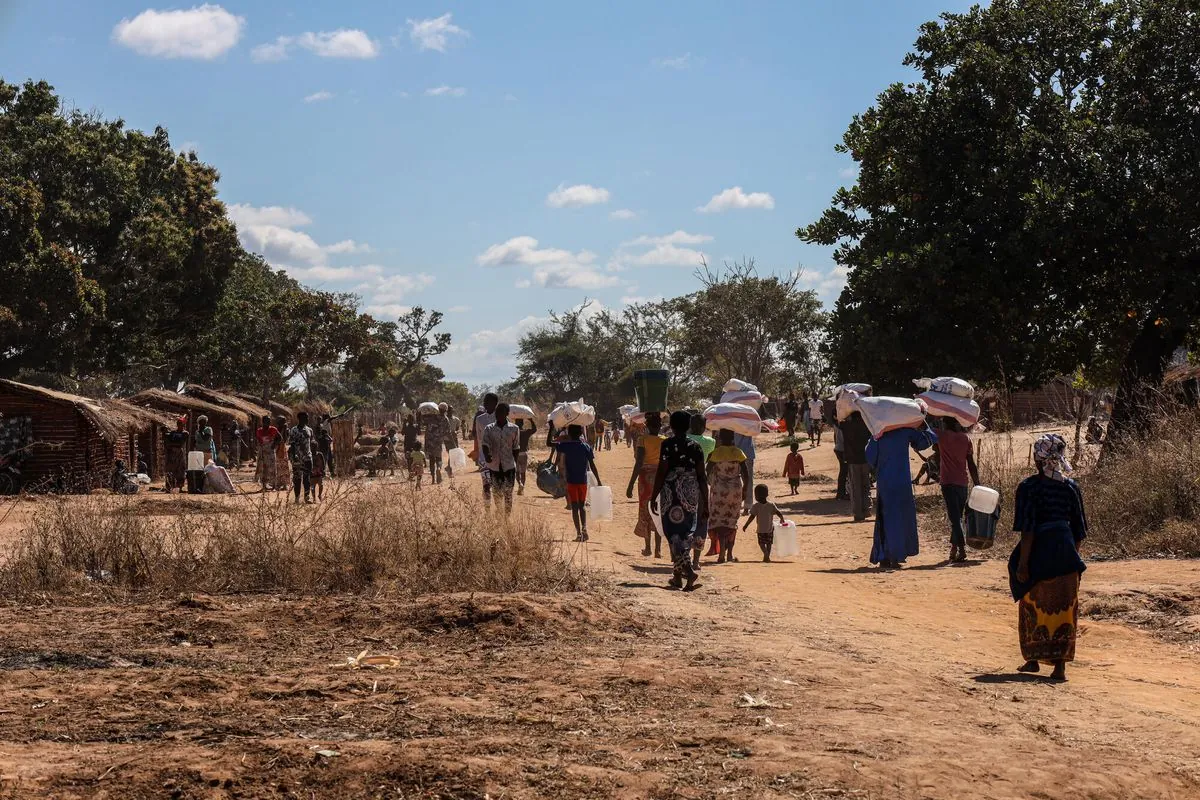In the early hours of a fateful morning in 2017, Regina Jasinto's life changed forever. As she finished preparing breakfast, armed militants emerged from the surrounding jungle, launching a brutal attack on her village in Muidumbe, Cabo Delgado province, Mozambique. Witnessing unimaginable violence, Jasinto gathered her three children and fled, eventually finding refuge nearly 200 miles south in Pemba.
Jasinto's harrowing experience is shared by over 1.3 million civilians displaced from Cabo Delgado since the onset of an extremist insurgency. The conflict, which has claimed more than 6,000 lives, highlights the stark contrast between the region's vast natural wealth and the extreme poverty endured by its inhabitants.
Cabo Delgado boasts significant deposits of rubies, graphite, and an estimated 125 trillion cubic feet of natural gas – the largest reserves on the African continent. Despite these resources, the World Bank reports that 95% of rural Mozambicans live in poverty, lacking basic amenities such as electricity and running water.
The insurgency began in October 2017 when a group known as Ansar al-Sunna, later affiliated with the Islamic State and renamed Islamic State Mozambique (ISM), emerged in the region. ISM's brutal tactics, including civilian massacres, have devastated local communities and disrupted major development projects.
The Mozambican government's approach to managing natural resource extraction, particularly liquefied natural gas (LNG) projects, has exacerbated tensions. TotalEnergies' Afungi LNG park, covering an area twice the size of Paris, displaced hundreds of families and disrupted traditional livelihoods dependent on coastal access and agriculture.
Daniel Movitel of Justica Ambiental explains, "Access to the sea and land is essential to livelihoods. Any disruptions cause major social issues. Palma's gas project led to rampant land grabbing."
The government's focus on militarization rather than addressing socioeconomic grievances has been criticized. President Filipe Nyusi has maintained a hardline stance, even employing Russian mercenaries from the Wagner Group in 2019, though this intervention proved short-lived and ineffective.
For displaced individuals like Amissana Yasini, now residing in Naminawe Camp, the situation remains precarious. "We're still afraid. They even attack towns. This is just a small village," she says, highlighting ongoing security concerns.
As Mozambique approaches presidential elections in October 2024, the conflict in Cabo Delgado continues to overshadow other pressing issues. While some locals believe the gas projects should proceed despite the challenges, the path to stability and equitable development remains uncertain.
"We're fighting because of the gas. If we abandon this project, forbid it, the gas is still there, and people will fight either way. We might as well extract it, even if we will benefit very little from it. It's still better than nothing."
The Cabo Delgado crisis underscores the complex interplay between natural resources, governance, and security in Mozambique. As the country grapples with these challenges, the international community watches closely, hoping for a resolution that brings peace and prosperity to this troubled region.
